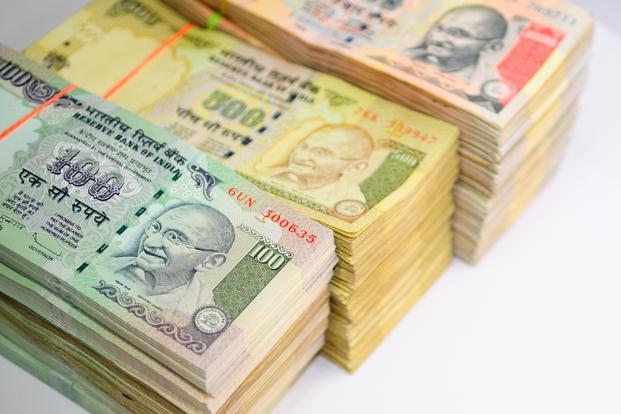Bottom Line: It has been one year that the Indian real estate has been reeling under the after-effects of demonetization. The debate on the eve of 8th November is hence centered on whether the demonetization has helped or hurt the sector.
 The answer to whether demonetization led to cashless real estate deals or less cash in the sector is not that easy as the response of the sector post the demonetization is as much economic as political. In its cost & benefit analysis, the stakeholders are confused over glass half full or half empty.
The answer to whether demonetization led to cashless real estate deals or less cash in the sector is not that easy as the response of the sector post the demonetization is as much economic as political. In its cost & benefit analysis, the stakeholders are confused over glass half full or half empty.
To understand the after-effects of demonetization one has to first look at the following queries:
Q. Has demonetization restored the faith of the consumers in the property market?
Q. Has demonetization pushed the sales velocity or led to lower absorption of real estate?
Q. Can the business of Indian real estate survive without the cash component when the financial modeling itself demands cash?
Q. Can legal channels of banks & financial institutions drive the housing market?
Grim statistics
Beyond views & counter-views some statistics indicate what the stakeholders would be careful to spell out. As per a PropEquity report, the new home launches dipped 83% across top 8 cities in the third quarter of 2017 from 24,900 units to 4,313 units.
There is certainly cash crunch in the market, more so with the developers in launching new projects. And despite the fact that there are fewer new launches, the unsold inventory dipped by just 4% to 4,46,730 units from 4,65,116 units.
The PropEquity report says, “Housing demand (absorption) across key cities dropped by 35% to 22,699 units from 34,809 units due to fewer new projects in the market and the lag effect in the revival of the end user driven demand, which is expected to pick up from the Q4, which is seasonally the best time to launch new projects.”
Stakeholders’ caveat
Surendra Hiranandani, CMD of House of Hiranandani has a caveat here when he says that the primary residential market and projects undertaken by credible and reputed builders were not affected significantly by demonetization. “Transactions in these markets are broadly financed through legal channels of banks and housing finance institutions providing home loans to buyers. Only in projects where cash component was involved and those in the secondary market have been affected.”
Admitting that the economy experienced a tiny speed breaker with the demonetization, Ashish R Puravankara, Managing Director Puravankara Limited maintains the after effect of the same was felt in the real estate sector as well. In its opening phase, demonetization disrupted the overall real estate business across the country impacting (new) launches, sales, and enquiries.
“Post the initial jolt, the southern real estate sector and especially the Bengaluru market observed a steady rise in customer enquiries out of which many turned out to be positive leads,” says Ashish.
A number of property consultants have also pointed out that the market is back on course after the immediate after-effects of demonetization. For example, a Colliers Research suggests the demonetization wave seems to have settled down and the prospect for the real estate sector looks promising.
Demonetization hurt
The statistics nevertheless tells a different story altogether. For instance, a recent report by PropTiger confirms that the home launches across the top nine cities in India tanked 53% to 22,115 units in the July to September period this year, against 47,032 units launched in the same period last year.
Of course, it is not just demonetization but the market slowdown has also been due to the implementation of the Goods and Services Tax (GST) and delay in implementation of the Real Estate Regulatory Act (RERA).
No one would like to admit or put on record but privately most of the developers maintain that their major investors have pulled out of market, both for land finance as well as for investment in the under-construction inventory.
Requesting anonymity a leading Bangalore-based developer shares his experience as to how one of his trusted investors after having paid INR 100 crore cheque a week before demonetization has requested to hold on to his commitment for the luxury villa. “He had promised another INR 100 crore in cash to have the transaction for four luxury villas near the airport,” shares the developer.
Secondary market hit
Moreover, the analysts are evaluating just the statistics of the primary market transactions which are reported. The demonetization has hurt the secondary market even more. A conservative estimate suggests that the transactions in the secondary market are nearly close to 50% down.
Does lower transaction in the secondary market have any co-relation with the fortune of the primary residential market? “Yes, it has,” says Gaurav Bhargava, a real estate analyst. “Secondary market transactions also reflect someone selling his smaller house to buy a large house in the secondary or primary market. It is about incremental housing purchase and lower transactions in the secondary market will have its bearing over the primary residential market.”
It would always be debatable whether demonetization could achieve its objectives of curbing black money, but what could be vouchsafed is the fact that the cash crunch it caused contributed significantly to the slowdown of real estate where the default financial modeling of the business demands cash transactions. One year is just too short time for the cash driven business of real estate to recover from an unexpected financial surgical strike.
By: Ravi Sinha





